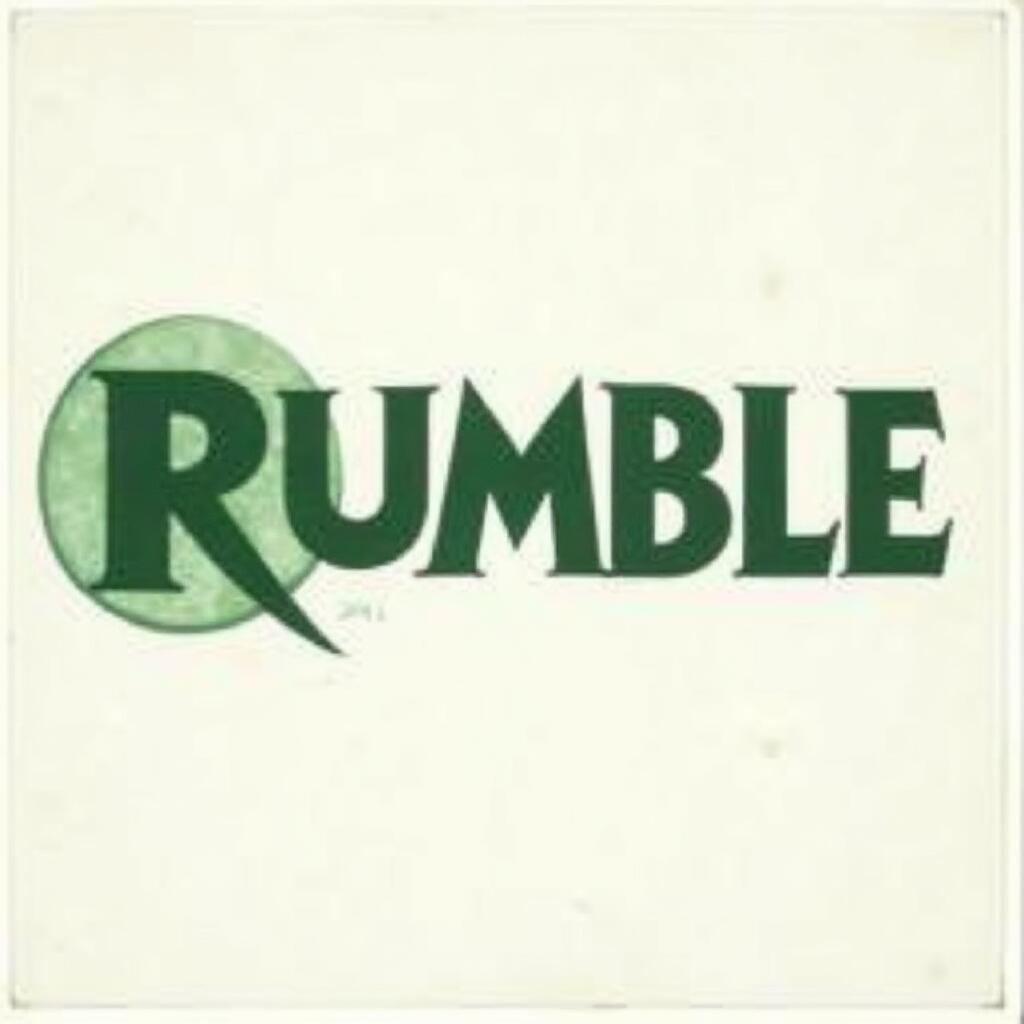SamuelGabrielSG on Nostr: Chris Pavlovski: The CEO Behind Rumble and the Fight for Free Speech In a world where ...
Chris Pavlovski: The CEO Behind Rumble and the Fight for Free Speech
In a world where online platforms are increasingly being pressured to censor content, Chris Pavlovski, the CEO of Rumble, has emerged as a formidable champion of free speech. Under his leadership, Rumble has positioned itself as a strong competitor to YouTube, offering a platform where content creators can express their ideas without the looming threat of censorship. Pavlovski's commitment to creating an open and free video-sharing platform has not only challenged the status quo but also led to significant legal battles, particularly against the tech giant YouTube, which has been accused of anti-competitive practices aimed at suppressing Rumble.
The Birth of Rumble: A Platform for Free Expression
Rumble was founded in 2013 by Chris Pavlovski with a clear mission: to provide an alternative to YouTube, a platform that has been increasingly criticized for its censorship policies. As YouTube became more stringent in its content moderation, often demonetizing or outright removing videos that didn’t align with its community guidelines, many creators began searching for alternative platforms where they could share their content freely. Rumble answered that call.
Pavlovski envisioned Rumble as a censorship-free platform that would allow content creators to thrive without the constant fear of being silenced. From political commentators to independent journalists, Rumble has become a haven for those who value the freedom to express their opinions without interference from corporate or governmental entities. This commitment to free speech has resonated with millions of users, propelling Rumble into the spotlight as a serious contender in the video-sharing space.
Legal Battles with YouTube: The Fight Against Anti-Competitive Practices
As Rumble grew in popularity, it inevitably caught the attention of YouTube, the dominant player in the video-sharing market. However, instead of fostering healthy competition, YouTube has been accused of engaging in anti-competitive practices designed to suppress Rumble’s growth. One of the most significant allegations is that YouTube manipulated its search algorithms to favor its own content while burying videos from Rumble in search results. This practice not only hurt Rumble’s visibility but also stifled the platform’s ability to attract new users and creators.
In response to these practices, Rumble, under Pavlovski’s leadership, took the bold step of filing a lawsuit against YouTube, accusing the tech giant of violating antitrust laws. The lawsuit alleges that YouTube’s actions are a deliberate attempt to maintain its monopoly in the video-sharing market by unfairly disadvantaging competitors like Rumble. The case has garnered significant attention, as it highlights the broader issue of Big Tech’s dominance and the need for a level playing field in the digital space.
Pavlovski’s decision to take on YouTube in court is a testament to his unwavering commitment to free speech and fair competition. By challenging YouTube’s anti-competitive practices, Pavlovski is not only defending Rumble’s right to exist but also advocating for the rights of all content creators who seek a platform where their voices can be heard without suppression.
Rumble’s Rise as a Free Speech Platform
Despite the challenges posed by YouTube’s anti-competitive tactics, Rumble has continued to grow under Pavlovski’s leadership. The platform’s user base has expanded rapidly, with millions of people flocking to Rumble to watch and create content. Unlike YouTube, Rumble has built its reputation on allowing a wide range of viewpoints to be shared, fostering a diverse community where ideas can be debated openly.
Rumble’s commitment to free speech extends beyond just allowing content to be posted. The platform has also taken steps to ensure that creators can monetize their content without fear of being demonetized for expressing controversial opinions. This approach has attracted many high-profile creators who have faced censorship on other platforms, further cementing Rumble’s status as a haven for free speech.
The Road Ahead: Defending Free Speech in the Digital Age
Chris Pavlovski’s journey with Rumble is far from over. As the platform continues to grow, it will undoubtedly face new challenges, both from competitors and from those who seek to impose censorship on online content. However, Pavlovski’s track record shows that he is more than capable of leading Rumble through these challenges.
His commitment to free speech, coupled with his willingness to take on tech giants like YouTube, has made Pavlovski a key figure in the fight to preserve open dialogue on the internet. In an era where Big Tech’s influence over online discourse is stronger than ever, Rumble’s success under Pavlovski’s leadership offers hope to those who believe in the importance of free expression.
As Rumble continues to carve out its place in the video-sharing market, Chris Pavlovski remains dedicated to his original mission: providing a platform where free speech can thrive, and where content creators can share their ideas without fear of censorship. His efforts have not only created a viable alternative to YouTube but have also sparked important conversations about the role of free speech in the digital age.
Conclusion
Chris Pavlovski’s leadership of Rumble represents a bold stand for free speech in a time when it is increasingly under threat. Through legal battles, strategic growth, and an unwavering commitment to open dialogue, Pavlovski has positioned Rumble as a leading platform for those who value the freedom to express their ideas. As Rumble continues to grow and challenge the dominance of censorship-friendly platforms like YouTube, Pavlovski’s vision of a censorship-free internet remains a guiding light for the future of online discourse.
Disclosure: I hold a small equity position in Rumble.

In a world where online platforms are increasingly being pressured to censor content, Chris Pavlovski, the CEO of Rumble, has emerged as a formidable champion of free speech. Under his leadership, Rumble has positioned itself as a strong competitor to YouTube, offering a platform where content creators can express their ideas without the looming threat of censorship. Pavlovski's commitment to creating an open and free video-sharing platform has not only challenged the status quo but also led to significant legal battles, particularly against the tech giant YouTube, which has been accused of anti-competitive practices aimed at suppressing Rumble.
The Birth of Rumble: A Platform for Free Expression
Rumble was founded in 2013 by Chris Pavlovski with a clear mission: to provide an alternative to YouTube, a platform that has been increasingly criticized for its censorship policies. As YouTube became more stringent in its content moderation, often demonetizing or outright removing videos that didn’t align with its community guidelines, many creators began searching for alternative platforms where they could share their content freely. Rumble answered that call.
Pavlovski envisioned Rumble as a censorship-free platform that would allow content creators to thrive without the constant fear of being silenced. From political commentators to independent journalists, Rumble has become a haven for those who value the freedom to express their opinions without interference from corporate or governmental entities. This commitment to free speech has resonated with millions of users, propelling Rumble into the spotlight as a serious contender in the video-sharing space.
Legal Battles with YouTube: The Fight Against Anti-Competitive Practices
As Rumble grew in popularity, it inevitably caught the attention of YouTube, the dominant player in the video-sharing market. However, instead of fostering healthy competition, YouTube has been accused of engaging in anti-competitive practices designed to suppress Rumble’s growth. One of the most significant allegations is that YouTube manipulated its search algorithms to favor its own content while burying videos from Rumble in search results. This practice not only hurt Rumble’s visibility but also stifled the platform’s ability to attract new users and creators.
In response to these practices, Rumble, under Pavlovski’s leadership, took the bold step of filing a lawsuit against YouTube, accusing the tech giant of violating antitrust laws. The lawsuit alleges that YouTube’s actions are a deliberate attempt to maintain its monopoly in the video-sharing market by unfairly disadvantaging competitors like Rumble. The case has garnered significant attention, as it highlights the broader issue of Big Tech’s dominance and the need for a level playing field in the digital space.
Pavlovski’s decision to take on YouTube in court is a testament to his unwavering commitment to free speech and fair competition. By challenging YouTube’s anti-competitive practices, Pavlovski is not only defending Rumble’s right to exist but also advocating for the rights of all content creators who seek a platform where their voices can be heard without suppression.
Rumble’s Rise as a Free Speech Platform
Despite the challenges posed by YouTube’s anti-competitive tactics, Rumble has continued to grow under Pavlovski’s leadership. The platform’s user base has expanded rapidly, with millions of people flocking to Rumble to watch and create content. Unlike YouTube, Rumble has built its reputation on allowing a wide range of viewpoints to be shared, fostering a diverse community where ideas can be debated openly.
Rumble’s commitment to free speech extends beyond just allowing content to be posted. The platform has also taken steps to ensure that creators can monetize their content without fear of being demonetized for expressing controversial opinions. This approach has attracted many high-profile creators who have faced censorship on other platforms, further cementing Rumble’s status as a haven for free speech.
The Road Ahead: Defending Free Speech in the Digital Age
Chris Pavlovski’s journey with Rumble is far from over. As the platform continues to grow, it will undoubtedly face new challenges, both from competitors and from those who seek to impose censorship on online content. However, Pavlovski’s track record shows that he is more than capable of leading Rumble through these challenges.
His commitment to free speech, coupled with his willingness to take on tech giants like YouTube, has made Pavlovski a key figure in the fight to preserve open dialogue on the internet. In an era where Big Tech’s influence over online discourse is stronger than ever, Rumble’s success under Pavlovski’s leadership offers hope to those who believe in the importance of free expression.
As Rumble continues to carve out its place in the video-sharing market, Chris Pavlovski remains dedicated to his original mission: providing a platform where free speech can thrive, and where content creators can share their ideas without fear of censorship. His efforts have not only created a viable alternative to YouTube but have also sparked important conversations about the role of free speech in the digital age.
Conclusion
Chris Pavlovski’s leadership of Rumble represents a bold stand for free speech in a time when it is increasingly under threat. Through legal battles, strategic growth, and an unwavering commitment to open dialogue, Pavlovski has positioned Rumble as a leading platform for those who value the freedom to express their ideas. As Rumble continues to grow and challenge the dominance of censorship-friendly platforms like YouTube, Pavlovski’s vision of a censorship-free internet remains a guiding light for the future of online discourse.
Disclosure: I hold a small equity position in Rumble.

